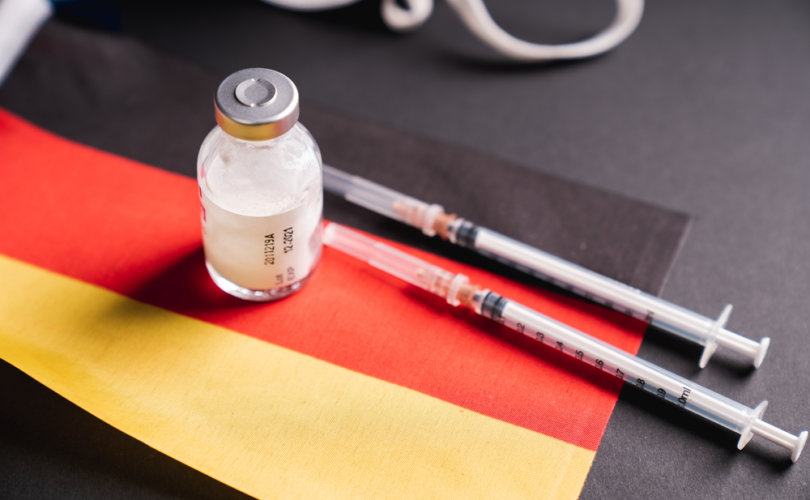BERLIN, Germany (LifeSiteNews) — Scientists in Germany are urging fully vaccinated people to get a third dose of the COVID vaccine to tackle a “sharp increase” of so-called “breakthrough” cases, while admitting that the vaccines don’t provide sufficient protection against the virus.
Uwe Janssens, secretary general of the German Society of Internal Medicine and Emergency Medicine (DGIIN) told German news agency RND on Friday that “almost 44% of patients over 60 currently admitted to intensive care units with COVID-19 are vaccine breakthrough cases.”
“That’s a clear and sharp increase,” he said.
Despite pointing to evidence of the vaccine’s insufficient protection, Janssens and others argued that the best way to deal with the situation is to inject more Germans with a third dose of the inefficient and experimental mRNA vaccines.
Back in October, the STIKO (Germany’s Standing Committee on Vaccination) recommended a third dose primarily for people over 70 years of age. Janssens described the age limit as a “big mistake” and advocated for a wider booster campaign.
“We need more flexibility when it comes administering booster shots,” he said. “Many doctors are sending their elderly patients away because they’re not yet 70 or over, as per the STIKO’s recommendation.”
“This is big a mistake,” he added, before calling for a “more pragmatic” approach to administering booster shots, in order to cope with the rising number of elderly patients who contract COVID despite being double jabbed.
According to a weekly report published Thursday by the Robert-Koch-Institut (RKI), the federal research institute responsible for disease control and prevention in Germany, a total of 175,188 breakthrough cases have been recorded in that country since the beginning of the year.
A previous report only a week earlier indicated 145,185 breakthrough cases. This shows an increase of 30,000 COVID cases in just one week among fully vaccinated people.
Karl Lauterbach, a German scientist and prominent member of the Social Democratic Party (SPD), said that “these breakthrough cases should not be underestimated.”
“Luckily, the really serious cases are rare,” he said. “However, many breakthroughs are more serious than people imagine, and they can lead to long COVID.”
In a clear admission of the vaccine’s inefficiency, Lauterbach added that “anyone who enters an indoor space should expect getting infected despite being vaccinated.”
Uwe Janssens is worried that hospitals might soon be overwhelmed by this new wave of fully vaccinated COVID patients.
“We know that local incidence rates are closely connected to intensive care units’ occupancy rates,” he said.
His concerns were shared by Gerald Gaß, chairman of the German Hospital Federation (DKG), who told RND that “the threshold of 4,000 occupied COVID beds in intensive care units is practically no longer avoidable at this point.”
Janssens expects his own hospital in Eschweiler to be overwhelmed.
“I’m very worried that this overload of patients is going to be too much for my colleagues,” he said.
The secretary general of the German Society of Internal Medicine and Emergency Medicine considered the COVID measures currently in place in Germany to be insufficient and called for more testing of fully vaccinated people.
“Given the breakthrough cases, the 2G rule isn’t enough,” he said.
2G is the German rule which consists in granting access to certain premises only to fully vaccinated people or people who have already contracted and recovered from COVID-19.
In another clear admission of the inefficacy of the vaccines, Janssens advocated for a “2G+ rule,” arguing that even fully vaccinated people should be regularly tested for COVID-19.
“In high-risk environments like hospitals or care homes, we need 2G+,” he said. “There, even fully vaccinated staff must be tested to ensure the protection of their patients.”
Meanwhile, reports of adverse events caused by the inefficient COVID-19 vaccines continue to increase worldwide, and to date, the U.S. Vaccine Adverse Events Reporting System (VAERS) is showing 97,715 of adverse event cases having required urgent care, as well as 18,461 deaths.

